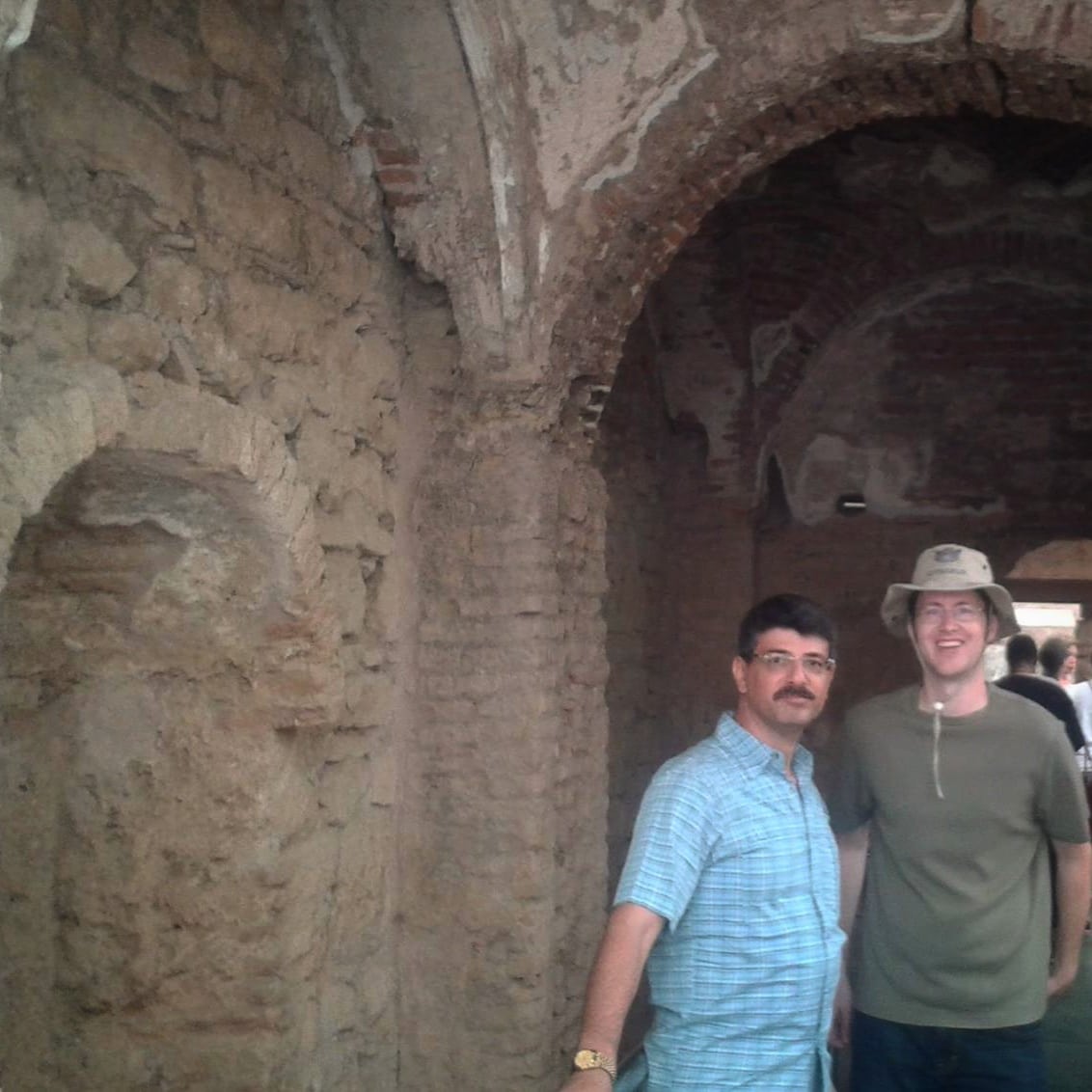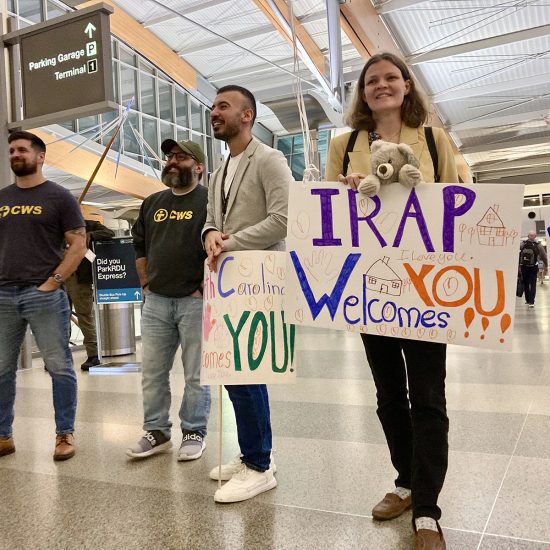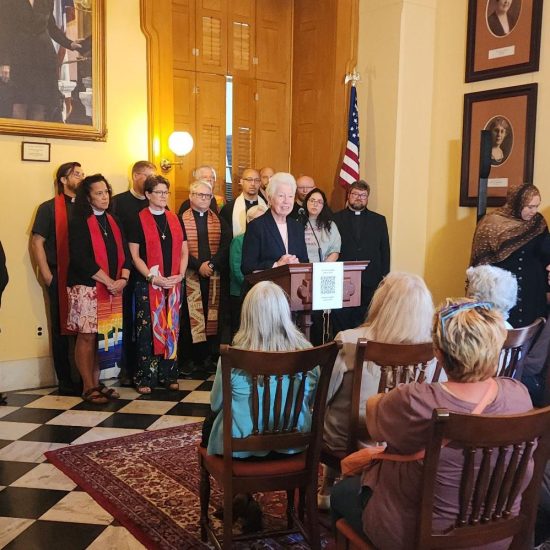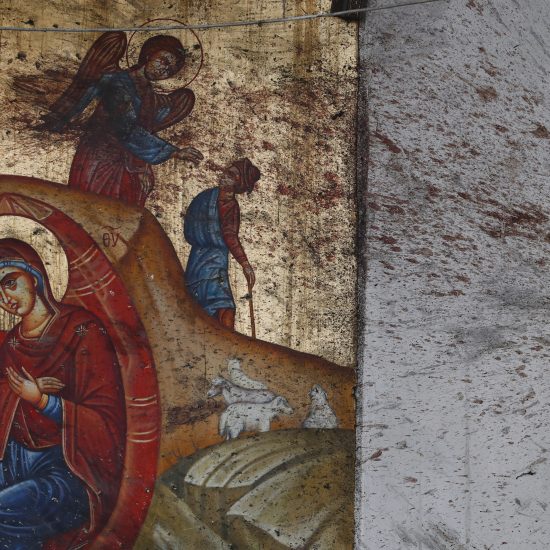Last Friday night, President Donald Trump banned my friend, Ara, from coming to the United States. Ara serves as a pastor of a Baptist church in Baghdad, Iraq. Trump’s executive order bans everyone coming from seven nations — including Iraq — and stops all refugees from any nation. As I read the words of Jesus — such as Matthew 5 and 25 and Luke 4 and 10 — I cannot support the anti-refugee, anti-Muslim policy. But this isn’t some abstract theology.
 Ara and Brian in Ephesus. (photo by Mazen)When I think of the president’s new policy, I think of Ara. I also think of Mazen, a Baptist pastor in Syria and therefore also banned by the presidential order. This order is not just some political talking point. This order impacts real people. Among the first impacted by the executive order were two Syrian Christian families sent back. An Iraqi Christian leader planning to visit U.S. legislators in Washington, D.C., to talk about the persecuted church also couldn’t travel.
Ara and Brian in Ephesus. (photo by Mazen)When I think of the president’s new policy, I think of Ara. I also think of Mazen, a Baptist pastor in Syria and therefore also banned by the presidential order. This order is not just some political talking point. This order impacts real people. Among the first impacted by the executive order were two Syrian Christian families sent back. An Iraqi Christian leader planning to visit U.S. legislators in Washington, D.C., to talk about the persecuted church also couldn’t travel.
I met Ara and Mazen during a Baptist World Alliance meeting in Turkey in 2014. I listened as they shared their experiences as part of a minority faith in their nations. Later I toured the spectacular ruins of Ephesus with the two as we took turns taking photos of each other. Together we walked the city where Paul, John and other early church leaders lived and preached. I felt privileged to share that moment with them — exploring an ancient city of the apostles with two Middle Eastern preachers.
Over the years, I’ve kept up with Ara on Facebook. We’ve hit “like” at key moments for the other, such as when I saw he got married and then had his first child. I’ve also been inspired from seeing photos of his congregation worshipping and his outreach to refugees. When Iraq is in the news, it’s not completely abstract for me. It’s Ara’s homeland. When I look at the globe on my desk, I think of the Baptists like him I’ve met in various countries thanks to Baptist World Alliance meetings. It impacts my view of the world and changes my prayers. My faith is better because I refuse to wall myself off.
I am heartened by the public critiques of the president’s order by Christians engaged in refugee assistance and resettlement. And I’m glad many Baptists have spoken against the executive order. This is a key moment for Christians to serve as “the conscience of the state” — as that Baptist preacher Martin Luther King Jr. put it. Perhaps we can be in our nation what Ara hopes his church can be in their land.
“We can promote reconciliation among the different groups in Iraqi communities,” Ara told Bible Study Magazine last year. “We can help others to avoid joining extreme sides. I think the Church has a role to help the community to obtain new values — to reject violence, accept the other and love the other. The Good Samaritan should be our example of loving those who are not like us.”
When we lose sight of individuals, we run the risk of adopting dangerous policies. And we run the risk of crossing to the other side of the street so we can keep walking.






